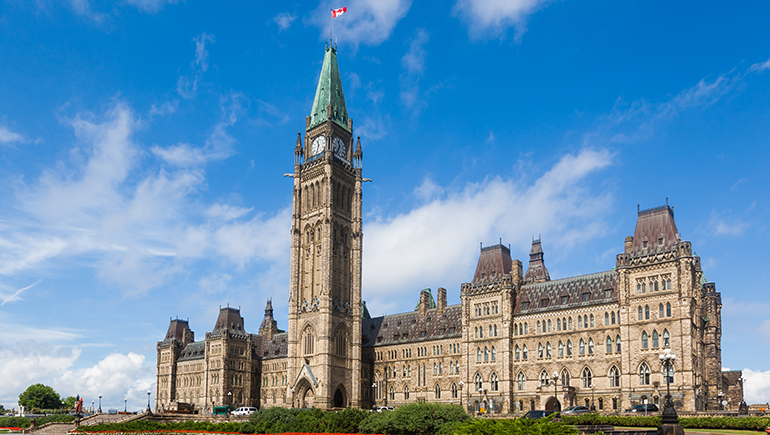Federal Fall Economic Statement to help bring affordability to buyers, owners, and renters
At a glance (7 minute read)
- The federal government announced a new Fall Economic Statement with initiatives aimed at bringing more affordable homes onto the market.
- A new Canadian mortgage charter will offer support, including extensions and fee waivers, for at-risk mortgage holders.
- $1 billion will be made available for affordable housing, $15 billion in loans for new home construction, and increased financing for rental projects.
- New measures will help combat financial crimes, strengthen competition laws, and create an independent ombudsman for banking complaints.

Deputy Prime Minister and Finance Minister Chrystia Freeland delivered the federal government’s 2023 Fall Economic Statement on November 21, 2023.
Here’s what the statement contained for home buyers, owners, and renters.
Mortgage relief
A new Canadian mortgage charter is being created. Canadians can expect lenders to:
- Allow temporary extensions of the amortization period for mortgage holders at risk.
- Waive fees and costs that would have otherwise been charged for relief measures.
- Not require insured mortgage holders to requalify under the insured minimum qualifying rate when switching lenders at mortgage renewal.
- Contact homeowners four to six months in advance of their mortgage renewal to inform them of their renewal options.
- Give homeowners at risk the ability to make lump sum payments to avoid negative amortization or sell their principal residence without any prepayment penalties.
- Not charge interest on interest in the event that mortgage relief measures result in a temporary period of negative amortization.
Short-term rentals
As of January 1, 2024, homeowners can’t claim income tax deductions for expenses incurred to earn short-term rental income, including interest expenses, in provinces and municipalities that prohibit short-term rentals.
Tax deductions will also not be allowed when short-term rental operators don’t comply with provincial or municipal licensing, permitting, or registration requirements.
Municipal enforcement of short-term rentals
Affordable Housing Fund
Co-operative Housing Development Program
GST gone from co-ops
Apartment Construction Loan Program
Low-cost rental financing
There will be a $20 billion per year increase to Canada Mortgage and Housing Corporation’s (CMHC) annual limit of support for low-cost financing on multiunit rental projects insured by CMHC.
Eligible rental projects must have at least five rental units. Funding is expected to help build up to 30,000 more rental apartments per year.
New Department of Housing, Infrastructure and Communities
Combatting financial crimes in the real estate sector
The government will address fraud and money laundering risks in the real estate sector by:
- extending requirements under the Proceeds of Crime (Money Laundering) and Terrorist Financing Act to title insurers; and
- requiring real estate representatives to identify unrepresented parties and third parties in real estate transactions.
Competition
Independent Ombudsman for Canadians dealing with banks (OBSI)
More construction workers
Funds are being re-allocated
Toronto Real Estate Board (TRREB) response
“We especially commend the federal government for listening to many industry stakeholders, including TRREB, in establishing a new Canadian Mortgage Charter,” said Paul Baron, TRREB president in a news release.
The Charter includes the removal of the stress test requirements for insured mortgage renewals in cases where a borrower is switching lenders, something TRREB has been calling for in recent years.
Since the mortgage stress test was introduced in 2016, borrowers switching lenders when renewing their mortgages weren’t exempt from the stress test qualification rule, which currently approaches eight per cent.
With close to 60 per cent of Canadian mortgages coming up for renewal in the next three years, this measure will give homeowners more flexibility to shop for the best possible rates and products, helping them save money during a time of heightened affordability challenges.
Read the news release on the Federal Fall Economic Statement.
Read the Federal Fall Economic Statement (opens 141-page pdf).
If you have questions, contact Harriet Permut, director of government relations at hpermut@rebgv.org.